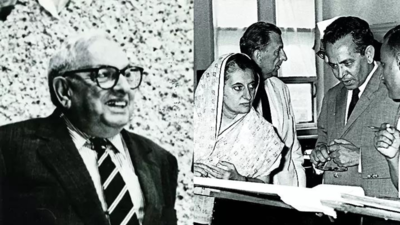[ad_1]

Ratan Tata used ‘retirement’ as a strategic tool to reshape Tata Group.
Taking over as chairman at the age of 54 in 1991, he faced a formidable challenge from the old guard. Senior leaders like Russi Mody, Ajit Kerkar, and Darbari Seth had flourished under JRD Tata’s vision, wielding power and running their respective businesses almost like personal fiefdoms, often at odds with the collective vision of the group.With his authority challenged, Tata introduced a series of bold reforms, starting with a retirement age policy aimed at transitioning these entrenched leaders.
Tata implemented a retirement policy in 1992 mandating that directors step down at 75. This change had immediate repercussions; Mody, who had dedicated 53 years to Tata Steel, was compelled to retire in 1993. In a last-ditch effort to maintain influence, a year before his retirement, Mody promoted his adopted son, Aditya Kashyap, to deputy MD without the approval of Tata Steel‘s board. Tata disapproved of this unilateral decision, forcing Mody to withdraw the promotion. Kashyap exited alongside Mody.Next to go was Seth. He retired from his roles at Tata Chemicals and Tata Consumer Products in 1994. Before his departure, he managed to appoint his son, Manu Seth, as MD of Tata Chemicals. However, Manu’s tenure was short-lived too; he resigned in 2000 over “differences in professional perception”.
Kerkar, who served as chairman and MD of Indian Hotels (Taj), resisted Tata’s management style. With several years remaining before retirement, the new policy did little to quiet him. However, in Sept 1997, he was compelled to resign after Tata Group accused him of violating foreign exchange laws.
The retirement policy was not merely a one-time adjustment; it was part of a series of strategic changes to come over the years, each reinforcing Tata’s authority over the vast Tata empire.
Eight years after introducing the retirement policy, the group further advanced the retirement age for non-executive directors to 70 in 2000. Ironically, in 2005, this age was raised to 75, allowing Tata to extend his chairmanship until 2012. Just a year before his retirement, the age was reverted back to 70, prompting questions about the motives behind these shifts in policy.
In a dramatic twist, the retirement policy resurfaced in 2016 when Tata Sons eliminated the age limit for nominees of Tata Trusts, the company’s largest shareholder. This strategic move enabled Tata, who served as chairman of Tata Trusts, to step back into a leadership role as interim chairman of Tata Sons and remove Cyrus Mistry from the position.
[ad_2]
Source link


